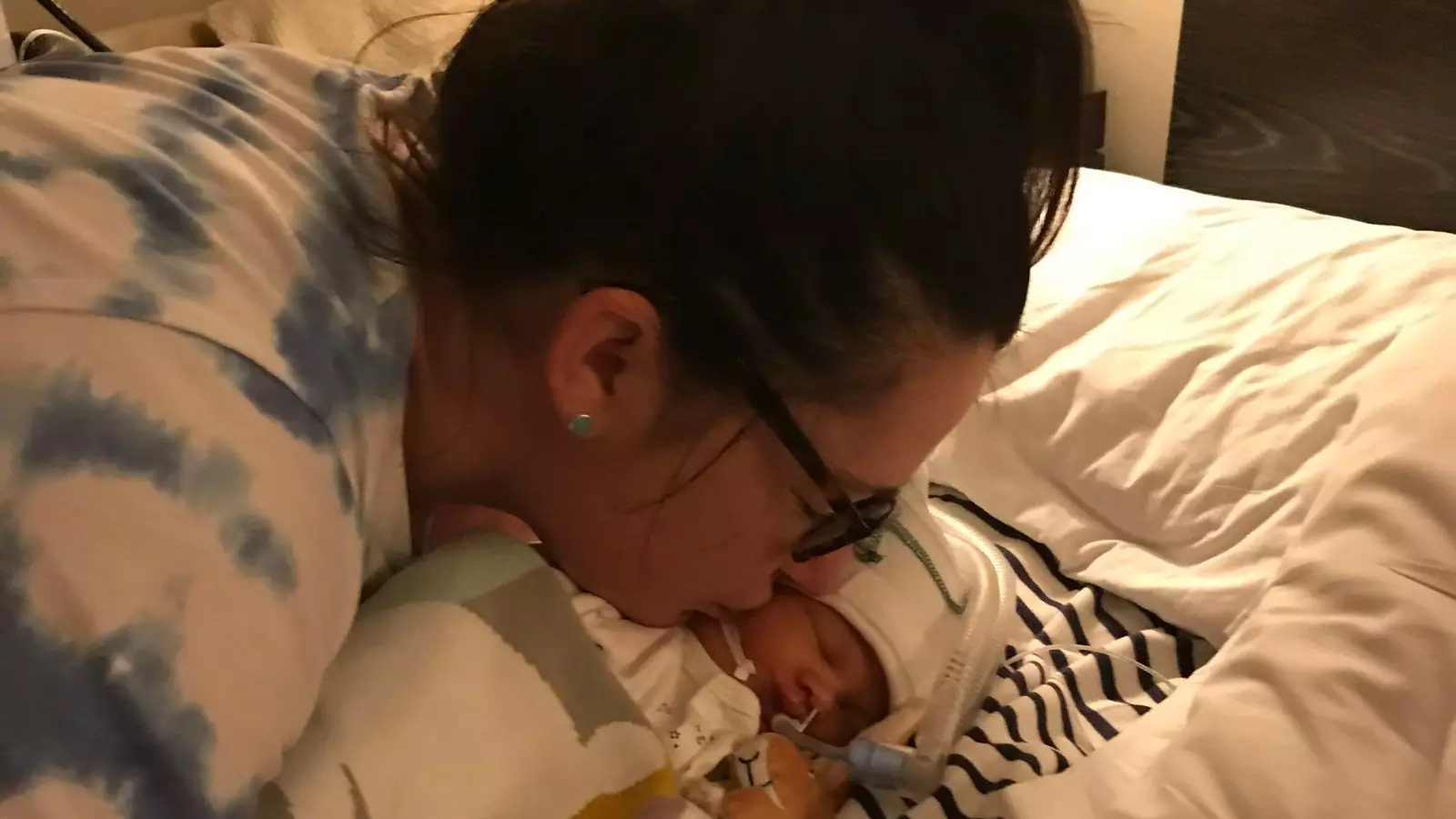The heartbreaking case of Ida Lock, a baby girl whose life was tragically cut short after just seven days due to catastrophic medical errors, shines a harsh spotlight on systemic failures within maternity care. Born in November 2019 at the Royal Lancaster Infirmary, Ida suffered a devastating brain injury caused by a lack of oxygen during delivery. This story is not just about one family’s grief; it serves as a grim reminder of how bureaucracy and negligence can shatter lives and profoundly alter the emotional fabric of a family. It raises critical questions about accountability and the robust culture of safety that should govern healthcare institutions.
Ida’s parents, Ryan Lock and Sarah Robinson, faced an uphill battle seeking the truth behind their daughter’s untimely death. Mr. Lock’s poignant statements reveal a chilling reality: “the hospital’s trust put up a huge wall” when they sought explanations. This wall wasn’t just physical; it was an impenetrable barrier of indifference and obscured truths that left the grieving couple feeling powerless. Meanwhile, Ms. Robinson’s comments hint at a sense of misplaced personal responsibility, as though the tragic outcome of her child’s delivery was a reflection of her shortcomings as a mother. Such a narrative is tragic and should never emerge from healthcare encounters—that a grieving parent could feel responsible for a systemic failing they had no control over.
The Role of Investigative Transparency
In a turn of events that many find indicative of a failing system, an initial investigation by the University Hospitals of Morecambe Bay NHS Trust found no fault—an outcome that raises suspicions about the integrity of such inquiries. The subsequent revelation from the Healthcare Safety Investigation Branch (HSIB) that identified significant failures during Ida’s care affirms a tragic irony: all the answers were, in fact, already known, yet they remained hidden from the very parents who needed them the most. This is not just negligence; it’s emblematic of a culture where the medical establishment feels more invested in self-preservation than in patient safety.
The very term “resuscitation” evokes feelings of urgency and hope, yet the report indicated “ineffective” resuscitation measures were employed—a phrase that sends chills down the spine. How many more families would have to endure the unbearable trauma of losing a child because of incompetence and a lack of accountability? As Ida’s parents have so painfully expressed, this cannot be allowed to happen again. The system must learn from these transgressions, and yet the specter of complacency looms large.
A Bigger Picture: Cultural Change is Non-negotiable
Dr. Bill Kirkup, a vital figure in investigations of maternity services, has criticized the failure to learn from past mistakes, exclaiming that it is “unforgivable” these issues persist. His insights reveal that the problems affecting maternity services are not isolated; systemic inertia contributes to a culture of neglect that extends far beyond individual institutions. When 65% of units are rated either “inadequate” or in need of improvement, we must ask ourselves: what is going wrong at a managerial level?
Accountability ought to be paramount in healthcare, and following Ida’s heartbreaking case, it has become evident that change must start from the top down. Mr. Lock’s insistence on the need for greater accountability is a vital call to action; otherwise, the cycle of deceit and cover-ups will continue unabated. Where individuals feel empowered to evade responsibility, they will inevitably cultivate an environment that fails its most vulnerable—newborns and their grieving families.
The Ongoing Battle for Healing
Now, several years since Ida’s passing, Ms. Robinson has welcomed another daughter into the world. Yet, the emotional toll of losing her firstborn lingers, transforming her reality into a continuous state of anxiety and stress. The scars of such a profound loss do not simply fade; they surface as a constant reminder of what could have been. Mental health ramifications are a shadow that accompanies Ida’s parents, framing their narratives in shades of despair that no parent should endure.
The Lock family’s struggle for answers underscores a broader epidemic of ignored grievances within maternity healthcare. They are not just statistics; they are human beings whose lives have forever been altered. Their pain should ignite a passion for reform, compelling society to demand accountability and transparency within healthcare systems. Only then can we hope to prevent future tragedies like Ida’s.

